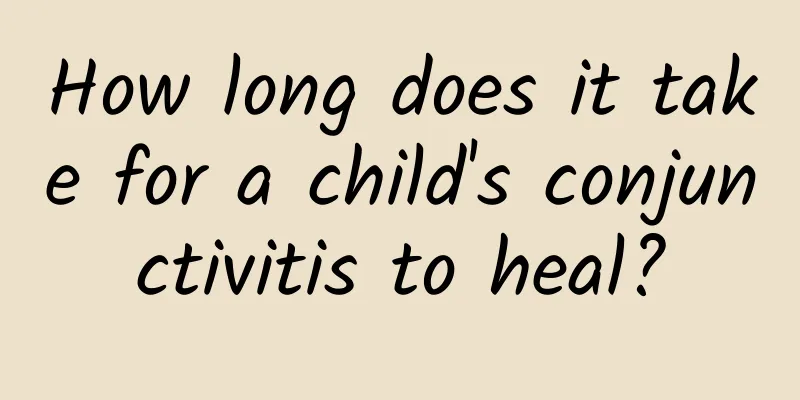What can't you eat for bone hyperplasia?

|
What should not be eaten by patients with bone hyperplasia? This is very important for all patients with bone hyperplasia, because this aspect often affects the recovery of patients with bone hyperplasia. Bone hyperplasia is a common orthopedic disease in our human body. It is generally more common among older people, especially manual laborers. People suffering from bone hyperplasia need to pay attention to many things. In addition to their daily life, they also need to pay attention to their diet. Generally, patients with bone hyperplasia need to receive timely treatment from a doctor. Sometimes, untimely treatment will often lead to worsening of bone hyperplasia. After treatment, patients usually have to take long-term medication, and doctors will generally tell patients what they need to pay attention to in their daily lives in case of bone hyperplasia, such as diet. Let's talk about what you can't eat if you have bone hyperplasia? Hyperplastic osteoarthritis refers to a chronic joint disease caused by joint degeneration and destruction of articular cartilage. Also known as degenerative arthritis, osteoarthritis and hypertrophic arthritis. Causes There are two types of proliferative osteoarthritis: primary and secondary. The primary type, also known as idiopathic, is mainly caused by the natural aging of the human body and is less common; while the secondary type is mainly caused by acquired chronic strain and trauma and is more common. 1. The basic cause of primary osteoarthritis is the gradual aging and degenerative changes of the human body after maturity, which manifests itself in bones and joints. 2. Secondary osteoarthritis refers to cartilage destruction or changes in joint structure due to some known reasons, such as trauma, surgery or other obvious factors. Due to factors such as friction or pressure imbalance on the joint surface, the joint surface undergoes degenerative changes. In most of these cases, an anatomical or diathesis-related abnormality can be found. 2 Clinical manifestations The disease has a slow onset and no systemic symptoms, and most patients are middle-aged or elderly people over 50 years old. It often occurs in multiple joints, but can also occur in a single joint. The affected joints may have persistent dull pain, which worsens with increased activity and improves with rest. The pain is usually mild but worsens with lower air pressure and is associated with changes in climate. Sometimes there may be acute attacks of pain, accompanied by joint stiffness and occasionally friction sounds in the joints. Joint stiffness worsens after sitting for a long time and improves after a little movement. Some people call it "rest pain." In the later stage, the joints become swollen, enlarged and limited in movement, rarely completely ankylosing, and generally manifest as bone block signs. What foods are bad for patients with bone hyperplasia? 1) Protein intake should be limited. Too much protein in food will cause calcium to be excreted from the body. 2) Do not eat any orange fruits, especially tangerines and oranges. Also avoid sugar, alcohol, and coffee. These substances will hinder the recovery process and disrupt the mineral balance in the body. 3) Avoid spicy food, smoking and drinking. Therefore, after the detailed introduction of the above content, I believe most people should know the question about what not to eat when suffering from bone hyperplasia. In fact, for patients with bone hyperplasia, there are actually many foods that can be eaten. On the contrary, there are also many foods that cannot be eaten, because if eaten, it will aggravate the condition. Generally, foods that cannot be eaten include high-protein foods, oranges, spicy foods, tobacco and alcohol, etc. |
<<: The dangers of anterior pelvic tilt
>>: How to regulate early menstruation
Recommend
What are the symptoms of tenosynovitis?
If you want to effectively treat tenosynovitis, y...
Does Sanfutie have to be applied on the day of the beginning of the dog days?
Does Sanfutie have to be applied on the first day...
Thrombolytic therapy
Thrombolytic therapy is a relatively common metho...
What exactly is microwave therapy?
Micro-wave therapy is a new type of high-frequenc...
Is red ginseng hot or cold?
Chinese medicine talks about the four properties ...
Can I take Chinese medicine during chemotherapy?
Chemotherapy is a treatment method mainly for tum...
Can I take medicine with cold water?
Many people are accustomed to drinking some ice w...
Side effects of hyperthermic chemotherapy
Hyperthermia chemotherapy is a new type of treatm...
Symptoms of median nerve rupture in wrist
Median nerve rupture at the wrist is a relatively...
What Chinese patent medicine should I take for dampness blocking the middle jiao?
Dampness blocking the middle burner is the name o...
What are the infectious factors of body eczema and how to treat it?
Tinea corporis is caused by fungi. All superficia...
When I wake up in the morning, my fingers are stiff. This may be the reason.
In daily life, many people experience stiff finge...
Improper lumbar massage may lead to paralysis
Question: My busy work makes me very tired and I ...
The effect of boiling coriander water with honey
In life, many people like to eat coriander. Every...
What to do if your singing voice is not good
Sometimes when friends get together, they always ...









